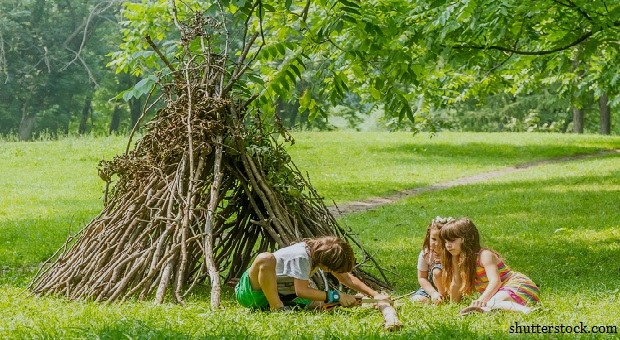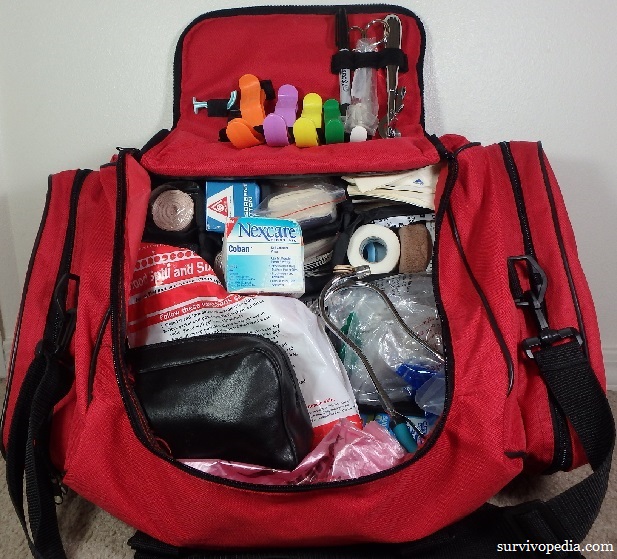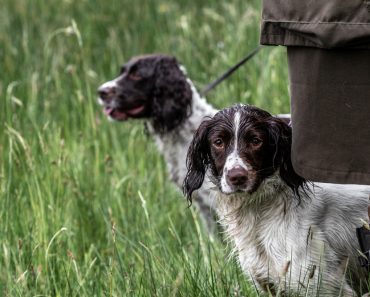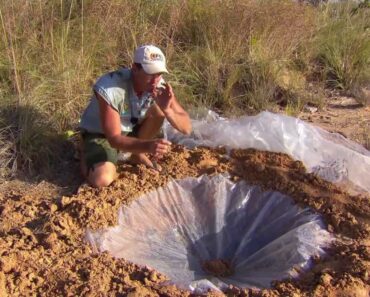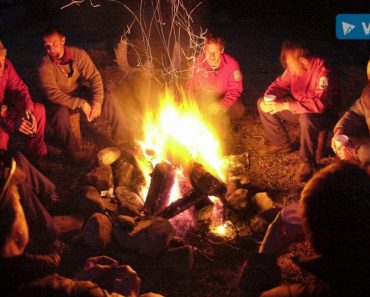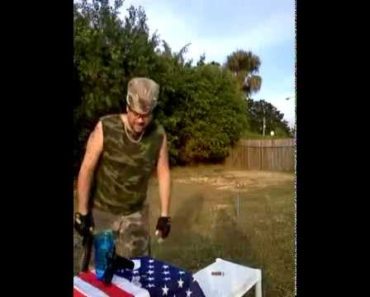Raising children who know how to handle challenges and emergencies is not something that you can teach in one sit-down lesson around the table.
It’s a way of life and a mindset that you want to instill in them to handle disasters independently if you are not around.
The best way to do this is to start making prepping a part of your everyday life. This isn’t as extreme as it sounds! It doesn’t mean you have to prepare for the end of the world, doomsday-type events every day. Instead, it means instilling a can-do attitude in your children, where challenges are met head-on in a fun and enjoyable way.
Jesse Woods, the founder of Matter of Math, homeschools his two children and views prepping skills as just as necessary as math or any other typical school subject.
Children gain so much confidence when they learn new things, learning comes naturally to kids, so it is in their nature to want to learn new skills, including prepping skills!
Here are a few examples of how you can teach your kids or grandkids some essential survival skills.
Cooking and Food
Let your kids get stuck in with you when you prepare simple meals. Ensure they know how to open tins, where your food is stored, and how to cook foods safely.
When you’re cooking, talk to them about a well-balanced diet and the types and amounts of each food they should have.
Do your children know how to make a fire? This can be a handy skill to learn, and it’s equally important to instill in them healthy respect for fire. In addition, knowing how to make their fire will ensure they can cook food if there is no gas or electricity.
Another fun activity that you can do with your children, which will come in handy if they don’t have gas or electricity, is to make a solar oven.
You could go one step further here and teach children how to grow their food. Give them a small patch of your garden and allow them to experiment with planting their food from seed.
When you’re out on walks, you can also talk to them about how to forage for edibles. For example, it might be handy to get them their book with large pictures and simple text.
Self Defense
Signing your children up for a self-defense class is a great way to help prepare them for worst-case scenarios. But more than this, it allows them to develop confidence, self-discipline, self-respect, and physical fitness.
Self-defense can help prepare our kids’ bodies for the adrenalin that comes with most situations that we like to prepare for.
Play the What If Game
This can be an enjoyable way to get your kids thinking about possible scenarios, and it gives them a safe space to think about what actions they might take without the real-life panic and pressure that might come in an actual situation.
You can adjust the hypothetical situations to the age and maturity of your child. For example, you might ask as a younger child, “what would you do if you’re in the bathroom when the intruder drill goes off at school?”
Other examples include “what if this room starting violently shaking?” or “what if you woke up and I wasn’t here?’
Playing this game will help your children identify the problem and the steps they need to take to handle each situation. It can be an excellent idea to let your children come up with their what-if questions, too – you can bet they’ll have thought of some things that won’t even be on your radar.
Navigation
Whether you’re out walking and using a map, or driving a long distance and are using satnav, let your children help navigate the way.
The more familiar they are with reading different types of maps, the more capable they will become. In addition, if you learn these skills while you’re out walking, this will also help increase your fitness levels and endurance.
Other ways to navigate include using local landmarks, a compass, or using the sun’s position to tell the time and directions. Most children find this information fun and will enjoy knowing how to use it. In addition, they will most likely show off their new skills to their friends or grandparents.
Communications
Let’s not just assume that because our kids are experts at keeping in touch via text, they know all the other important ways to communicate.
Do they know how or who to call in case of an emergency? The “What If” game is a great one to play, to try out different scenarios, and think about who the most appropriate person is to contact in different situations.
Do they know how to use some of the other communication devices in your home? For example, do they know how to use the home phone and tune the radio to a specific station?
You might want to draw up an emergency contacts plan, or at the very least, ensure that all the emergency numbers are stored in their mobile phone.
For younger children, make sure they know your mobile number or their address.
First Aid
Do your kids know where your medical supplies are kept in your home? Would they know how to use them in an emergency?
You can start by teaching them the basics of cleaning a wound and using the proper dressings and bandages.
Better yet, sign them up to scouts, and they’ll learn plenty of first aid. Again, there is a fun environment along with their friends.
Go Camping
Camping teaches our children loads of essential skills, without us even realizing it!
Setting up the tent or shelter can teach them about the importance of having a water-tight shelter and the need to stay warm. You can teach them to light a fire to cook food on and keep warm. You can teach kids how to find and purify water, how to tie knots, and countless other things.
Camping teaches self-reliance and allows you to test out living away from civilization, even if it is just a few miles away!
Your children will have to get creative if you need supplies, but there isn’t a shop within walking distance. Camping can provide an excellent opportunity to put our kids ‘ prepping skills into action.
Don’t Overdo It!
Make all of these activities something that you work into everyday life, rather than drilling in “we’re doing this just in case….”
If you discuss disaster or end of the world type scenarios too much, this can have the opposite effect on children and create an unreasonable fear in them.
These suggestions are all based on fun activities that you can enjoy as a family to build on all the necessary skills that your children might one day need to use in an emergency. But, even if that trouble never comes, there are so many benefits to living a full and wholesome life through all these activities.


